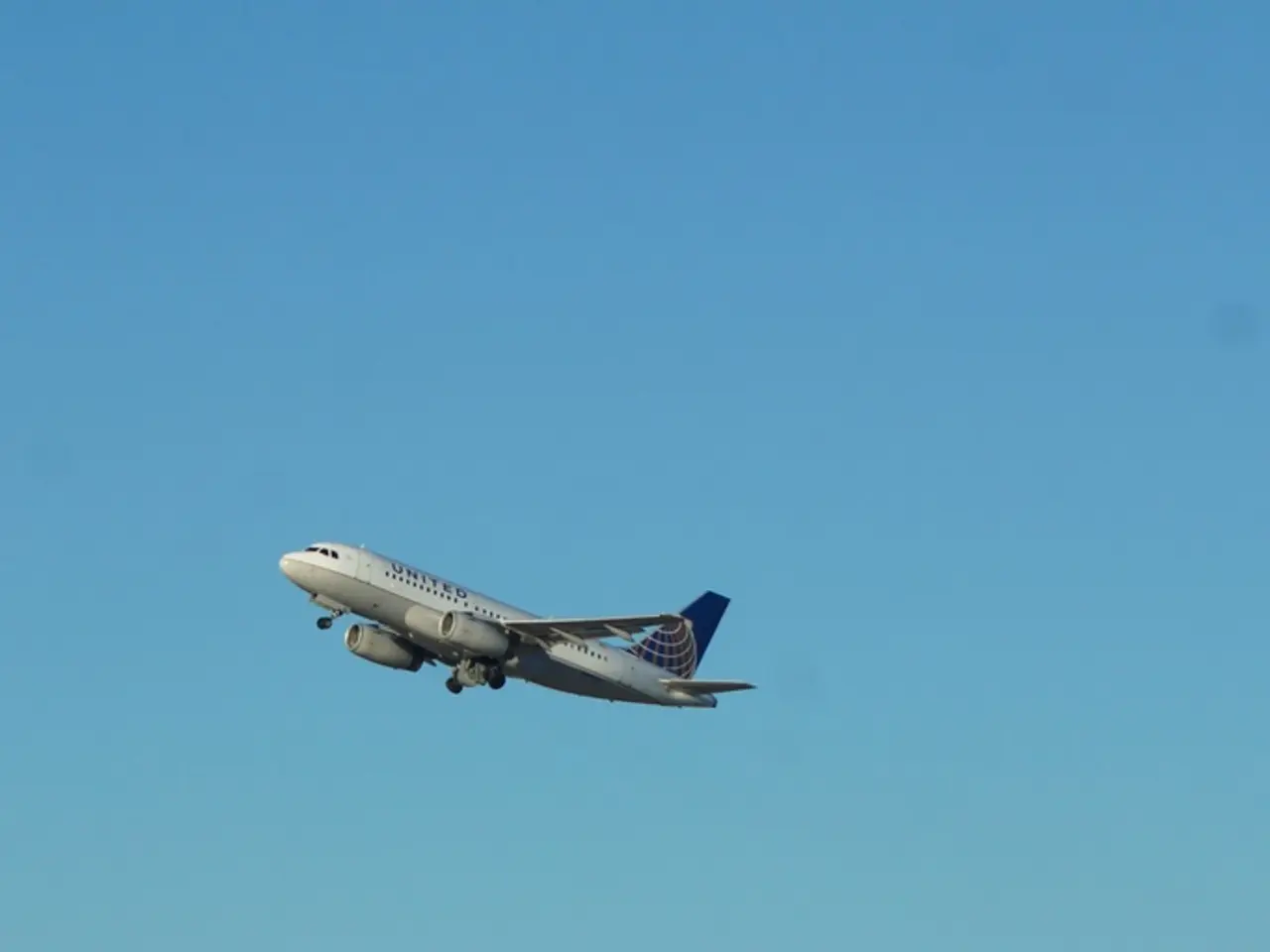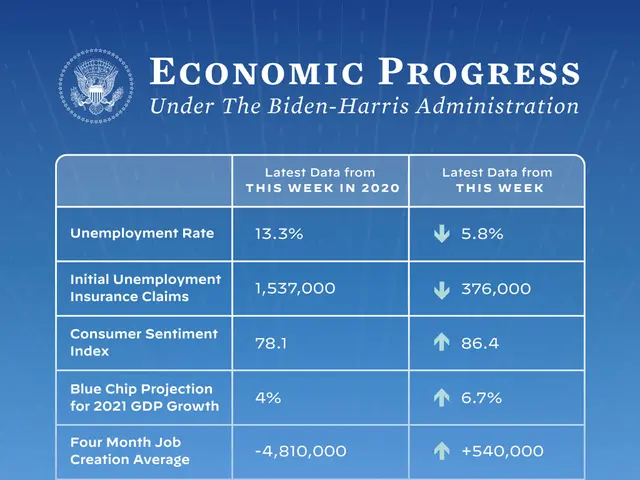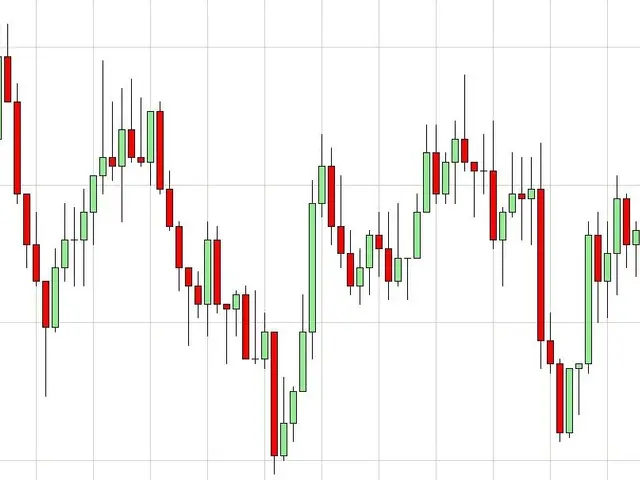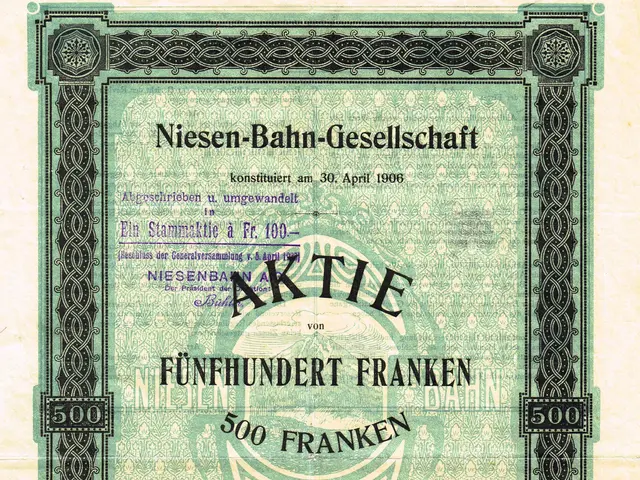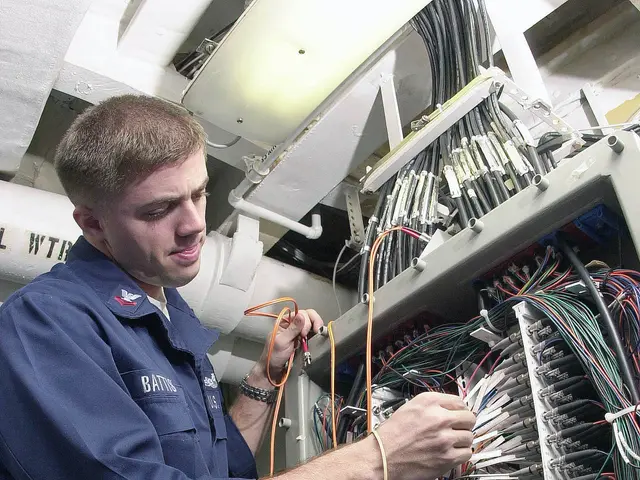Munich Airport Capitalizes on Its Advantages
Munich Airport, operated by Jost Lammers, is experiencing growth and change, as it aims to increase its passenger numbers from 41.6 million in 2024 to 44 million this year, marking a six percent growth.
The airport's modern fleet, primarily consisting of A350 and A380 aircraft operated by the Lufthansa Group, sets it apart from Frankfurt Airport. Lufthansa, in fact, contributes significantly to Munich Airport's business, accounting for over 70 percent of its operations.
However, it's not just Lufthansa that calls Munich Airport home. Important airlines outside the Lufthansa Group, such as Qatar Airways, have a strong presence here. Qatar Airways operates daily flights connecting Munich with Doha and numerous global destinations, maintaining strong codeshare agreements with major international airlines.
The airport is also seeing the emergence of new players. The newly founded Bavarian Airlines, established in Munich in late 2022, plans to offer competitive domestic and European flights from Munich with enhanced service and comfort. Smaller or regional carriers like Skyhub PAD are also serving routes such as Paderborn to Munich, highlighting the airport's evolving diversified connections.
ITA Airways, a new member of the Lufthansa family, is expected to offer opportunities for the Africa and South America business at Munich Airport. Additionally, Cathay Pacific is set to start operations at the airport soon.
The next three to five years are crucial for the survival of the aviation industry in Europe, with the global competition for hubs intensifying. European hubs, including Munich, are in competition with Istanbul and airports in the Gulf. This competition extends beyond airline rivalries, with airline and airport cooperation playing a significant role. For instance, Air France-KLM is pursuing a dual-hub strategy in Amsterdam and Paris, while Lufthansa has Munich and Frankfurt.
Jost Lammers, the operator of Munich Airport, perceives Frankfurt as a competitor due to its 50-year head start as a major airport and hub. However, Lufthansa has its own hub manager, Jens Ritter, on site at Munich Airport, working to maintain and improve the airport's operations.
Despite some mutual tensions between Munich Airport and Lufthansa in the past, they have since worked through them. Currently, Lufthansa is performing excellently at Munich Airport in terms of punctuality, stability, and other key figures. Lufthansa Group has also invested in the airport, sharing in the revenues and non-aviation business.
The competitiveness of European hubs also depends on European politics and regulations, with the current Green Deal situation and SAF posing challenges. However, Munich Airport and Lufthansa are working together through Terminal 2 system, a close joint venture, to navigate these challenges and continue to thrive.
Read also:
- Federal Funding Supports Increase in Family Medicine Residency Program, Focusing on Rural Health Developments
- Potential Role of DHA in Shielding the Brain from Saturated Fats?
- Alternative Gentle Retinoid: Exploring Bakuchiol Salicylate for Sensitive Skin
- Hanoi initiates a trial program for rabies control, along with efforts to facilitate the transition from the dog and cat meat trade industry.
